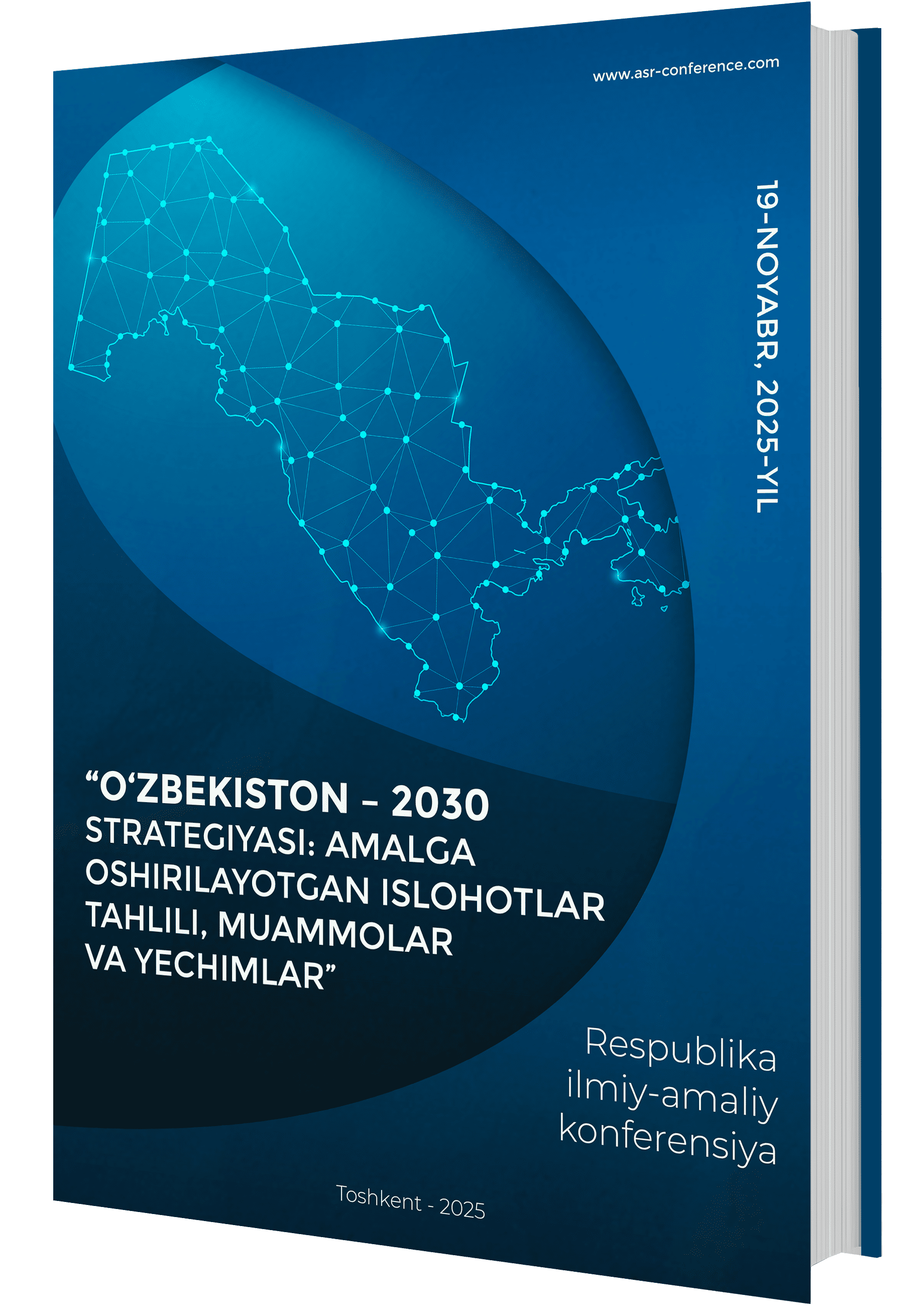ARTIFICIAL INTELLIGENCE–DRIVEN APPROACHES TO CLINICAL DECISION SUPPORT SYSTEMS
Аннотация
The integration of Artificial Intelligence (AI) into Clinical Decision Support Systems (CDSS) has significantly reshaped contemporary healthcare practices by enhancing diagnostic precision, predictive capabilities, and therapeutic decision-making. This research investigates the role and impact of AI-driven tools in assisting clinicians throughout various stages of the medical decision-making process. The study systematically examines the advantages, limitations, and challenges associated with the adoption of AI technologies within healthcare systems. The methodological approach involves an extensive review of existing literature, a comparative analysis of prominent AI-based decision support tools, and an evaluation of selected clinical case studies. The findings demonstrate that the incorporation of AI in CDSS contributes to improved diagnostic accuracy, more reliable predictive analytics, and the development of optimized and personalized treatment strategies. Furthermore, the study discusses the ethical, technical, and operational challenges that accompany the integration of AI into clinical workflows, emphasizing the need for transparency, data security, and clinician training. In conclusion, the paper presents a set of practical recommendations for the effective implementation of AI in clinical practice and outlines potential directions for future research aimed at advancing intelligent, reliable, and ethically sound healthcare decision-support systems.
Библиографические ссылки
McKinney, S.M., Sieniek, M., Godbole, V., Godwin, J., Antropova, N., Ashrafian, H., Back, T., Chesus, M., Corrado, G.S., Darzi, A. and Etemadi, M., 2020. International evaluation of an AI system for breast cancer screening. Nature, 577(7788), pp.89-94..
Yan, L., Zhang, H. T., Goncalves, J., Xiao, Y., Wang, M., Guo, Y., ... & Yuan, Y. (2020). An interpretable mortality prediction model for COVID-19 patients. Nature machine intelligence, 2(5), 283-288.
Shickel B, Tighe PJ, Bihorac A, Rashidi P: Deep EHR: A survey of recent advances in deep learning techniques for electronic health record (EHR) analysis. IEEE J Biomed Health Inform. 2018, 22:1589-604. 10.1109/JBHI.2017.2767063
Rajkomar A, Dean J, Kohane I: Machine learning in medicine . N Engl J Med. 2019, 380:1347-58. 10.1056/NEJMra1814259
Litjens G, Kooi T, Bejnordi BE, et al.: A survey on deep learning in medical image analysis . Med Image Anal. 2017, 42:60-88. 10.1016/j.media.2017.07.005
Esteva A, Kuprel B, Novoa RA, Ko J, Swetter SM, Blau HM, Thrun S: Dermatologist-level classification of skin cancer with deep neural networks. Nature. 2017, 542:115-8. 10.1038/nature21056
Somashekhar, S. P., Sepúlveda, M. J., Puglielli, S., Norden, A. D., Shortliffe, E. H., Kumar, C. R., ... & Ramya, Y. (2018). Watson for Oncology and breast cancer treatment recommendations: agreement with an expert multidisciplinary tumor board. Annals of Oncology, 29(2), 418-423..
Guidance, W. H. O. (2021). Ethics and governance of artificial intelligence for health. World Health Organization.
Topol, E. (2019). Deep medicine: how artificial intelligence can make healthcare human again. Hachette UK.
Kim, J., Harper, A., McCormack, V., Sung, H., Houssami, N., Morgan, E., ... & Fidler-Benaoudia, M. M. (2025). Global patterns and trends in breast cancer incidence and mortality across 185 countries. Nature Medicine, 1-9.
Obermeyer Z, Powers B, Vogeli C, Mullainathan S: Dissecting racial bias in an algorithm used to manage the health of populations. Science. 2019, 366:447-53. 10.1126/science.aax2342
Understanding HIPAA & AI: compliance risks & possibilities. (2023). Accessed: March 18, 2024: https://aihc-assn.org/ai-and-hipaa-privacy-concerns/
Choi E, Bahadori MT, Schuetz A, et al.: Doctor Ai: Predicting clinical events via recurrent neural network. JMLR Workshop Conf Proc. 2016, 56:301-18.
Ryu G, Lee K, Park D, Park SH, Sagong M: A deep learning model for identifying diabetic retinopathy using optical coherence tomography angiography. Sci Rep. 2021, 11:23024. 10.1038/s41598-021-02479-6
Mittermaier M, Raza M, Kvedar JC: Collaborative strategies for deploying AI-based physician decision support systems: challenges and deployment approaches. NPJ Digit Med. 2023, 6:137. 10.1038/s41746-023-00889-6
Загрузки
Опубликован
Выпуск
Раздел
Лицензия
Copyright (c) 2025 Mukhriddin Mukhiddinov, Shahzodbek Mirzarahmatov

Это произведение доступно по лицензии Creative Commons «Attribution-NonCommercial» («Атрибуция — Некоммерческое использование») 4.0 Всемирная.
Условия лицензии
Эта работа доступна под лицензией Creative Commons Attribution-NonCommercial 4.0 International License. Чтобы просмотреть копию этой лицензии, посетите http://creativecommons.org/licenses/by-nc/4.0/ или отправьте письмо по адресу Creative Commons, PO Box 1866, Mountain View, CA 94042, США.
По этой лицензии вы можете:
Поделиться — копируйте и распространяйте материал на любом носителе и в любом формате.
Адаптируйте — делайте ремиксы, трансформируйте и дорабатывайте материал.
Лицензиар не может отозвать эти свободы, если вы соблюдаете условия лицензии. На следующих условиях:
Атрибуция. Вы должны указать соответствующую ссылку, предоставить ссылку на лицензию и указать, были ли внесены изменения. Вы можете сделать это любым разумным способом, но не таким образом, который бы предполагал, что лицензиар одобряет вас или ваше использование.
Некоммерческое использование — вы не имеете права использовать материал в коммерческих целях.
Никаких дополнительных ограничений. Вы не имеете права применять юридические условия или технологические меры, которые юридически запрещают другим делать все, что разрешено лицензией.





